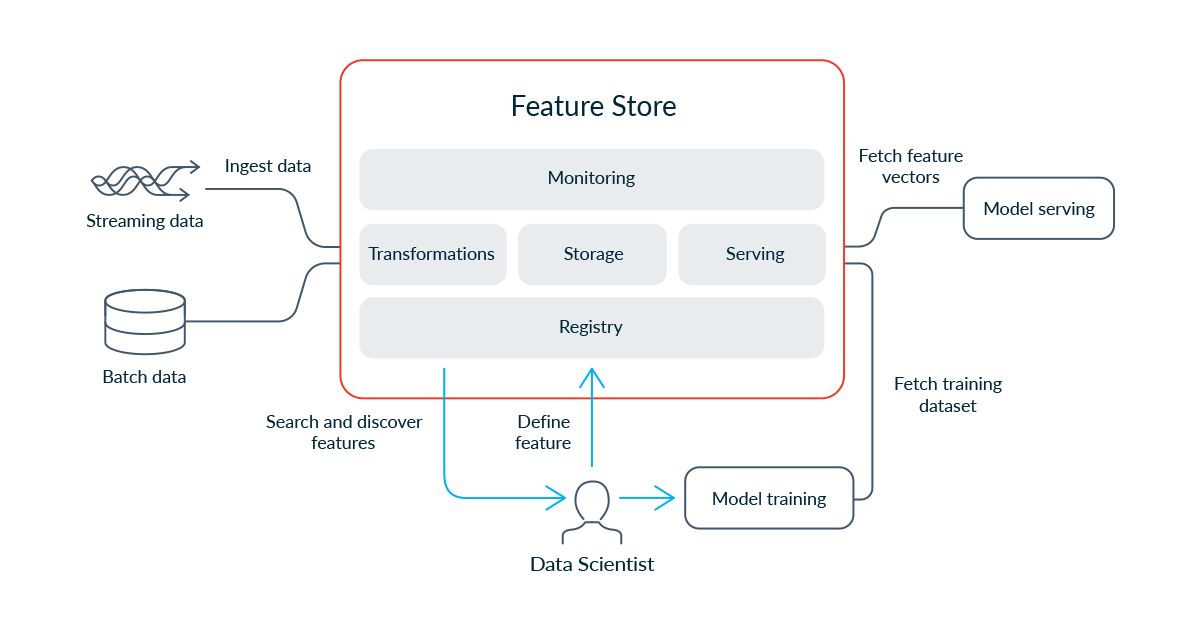What Is a Machine Learning Scientist
A machine learning scientist is a highly skilled and sought-after professional who specializes in the field of machine learning. Machine learning is a subset of artificial intelligence that focuses on the development of algorithms and models that enable computers to learn and make predictions or decisions without being explicitly programmed.
Machine learning scientists are experts in analyzing large and complex datasets, developing and implementing machine learning models, and conducting experiments to extract insights and patterns from data. They apply mathematical and statistical approaches, as well as programming and computational skills, to design and train models that can detect patterns, make predictions, or solve problems in various domains.
To excel in this role, a machine learning scientist needs to have a solid foundation in computer science, mathematics, and statistics. They should have in-depth knowledge of machine learning algorithms and techniques such as regression, classification, clustering, deep learning, and reinforcement learning. Proficiency in programming languages like Python, R, and Java is essential, as well as experience with machine learning libraries and frameworks such as TensorFlow, scikit-learn, and PyTorch.
A machine learning scientist should also possess strong analytical and problem-solving skills, as they often encounter complex problems that require innovative solutions. They need to have a deep understanding of data preprocessing and feature engineering techniques to effectively clean and transform data for model training. Additionally, the ability to interpret and communicate the results of machine learning experiments to non-technical stakeholders is crucial in order to drive informed decision-making.
In summary, a machine learning scientist is a skilled professional who combines expertise in machine learning, programming, and data analysis to develop innovative solutions and algorithms that enable computers to learn from data and make intelligent decisions. Whether it’s developing recommendation systems, improving image recognition algorithms, or enhancing natural language processing models, machine learning scientists play a critical role in shaping the future of technology and driving innovation in various industries.
Introduction
Machine learning has become a key driver of innovation and advancement in various industries. From personalized recommendations on streaming platforms to autonomous vehicles, machine learning algorithms are transforming the way we live and work. At the heart of this transformative technology, there is a highly skilled professional known as a machine learning scientist.
A machine learning scientist is someone who combines the fields of computer science, statistics, and artificial intelligence to develop and apply algorithms that enable computers to learn from data and make predictions or decisions. They are at the forefront of solving complex problems and uncovering valuable insights from massive datasets.
Machine learning scientists have a deep understanding of mathematical and statistical approaches, programming languages, and data analysis techniques. They leverage these skills to develop and optimize machine learning models, train them on large datasets, and evaluate their performance. By identifying patterns and trends in data, machine learning scientists can create models that can predict outcomes, classify objects, cluster data points, or optimize processes.
The role of a machine learning scientist goes beyond simply building models. They are involved in the entire process from problem formulation and data collection to model training and deployment. They collaborate with cross-functional teams, including data engineers, domain experts, and business stakeholders, to understand the problem at hand and deliver impactful solutions.
Machine learning scientists work in a wide range of industries, including healthcare, finance, e-commerce, and manufacturing. They apply their expertise to various applications such as fraud detection, customer segmentation, recommendation systems, and predictive maintenance. With their ability to extract insights and make predictions, machine learning scientists contribute to business growth and operational efficiency.
In this article, we will explore the role and responsibilities of a machine learning scientist, the skills and qualifications required, and the importance of their contribution to various industries. We will also compare the roles of machine learning scientists and data scientists to understand their similarities and differences.
Now, let’s delve into the fascinating world of machine learning scientists and discover the cutting-edge innovations they are bringing to the table.
Definition of a Machine Learning Scientist
A machine learning scientist is a skilled professional who possesses a deep understanding of the field of machine learning and applies this knowledge to various data-driven problems. They are experts in analyzing complex datasets, developing and implementing advanced machine learning models, and extracting valuable insights from data.
Machine learning scientists are proficient in programming languages such as Python, R, and Java, and they have a strong foundation in computer science, mathematics, and statistics. They leverage these skills to design and train machine learning models that can autonomously learn from data and make accurate predictions or decisions.
One of the primary responsibilities of a machine learning scientist is to preprocess and clean data in order to ensure high-quality inputs for model training. This involves tasks such as removing outliers, handling missing values, and transforming variables to make them suitable for analysis. They also employ feature engineering techniques to extract relevant information from raw data and enhance the performance of machine learning models.
Once the data is prepared, machine learning scientists select suitable algorithms and techniques that align with the problem at hand. They can choose from a wide range of methods, including linear regression, decision trees, support vector machines, neural networks, and deep learning models. The choice of algorithm depends on the nature of the problem, the size and complexity of the dataset, and the desired outcome.
After selecting an appropriate algorithm, machine learning scientists train the model by feeding it labeled data. This process involves optimizing the model’s parameters in order to minimize the difference between predicted outputs and actual values. They continuously evaluate the model’s performance using metrics such as accuracy, precision, recall, and F1 score, and fine-tune the model when necessary.
Once the model is trained and validated, machine learning scientists deploy it into real-world applications to make predictions or decisions in real-time. They monitor the model’s performance, identify and resolve any issues that arise, and continuously update and improve the model as new data becomes available.
Overall, a machine learning scientist is a highly skilled professional who combines expertise in machine learning, programming, and data analysis to develop, train, and deploy machine learning models that can extract valuable insights and make accurate predictions from complex datasets. Their contributions play a vital role in shaping the application of machine learning in various domains and driving innovation forward.
Skills and Qualifications
To excel as a machine learning scientist, individuals must possess a unique set of skills and qualifications that allow them to effectively tackle complex data-driven problems. Here are some key skills and qualifications required for this role:
- Strong background in mathematics and statistics: Machine learning scientists need a solid foundation in mathematics and statistics to understand the underlying principles of machine learning algorithms. Knowledge of linear algebra, calculus, probability, and statistical inference is crucial for designing and optimizing models.
- Proficiency in programming languages: A strong command of programming languages such as Python, R, and Java is essential for implementing machine learning algorithms, preprocessing data, and building models. Familiarity with libraries and frameworks like TensorFlow, scikit-learn, and PyTorch is also beneficial.
- Expertise in machine learning algorithms: Deep knowledge of various machine learning algorithms such as regression, classification, clustering, and deep learning is vital. Understanding their strengths, weaknesses, and appropriate use cases allows machine learning scientists to select the most suitable models for different problems.
- Data preprocessing and feature engineering: Machine learning scientists should be adept at cleaning and transforming data to ensure accurate model training. They need to possess expertise in data preprocessing techniques such as handling missing values, scaling features, and handling outliers. Additionally, they should be skilled in feature engineering to extract meaningful insights from raw data.
- Data visualization and communication: The ability to effectively communicate complex findings and insights to both technical and non-technical stakeholders is crucial. Machine learning scientists should be adept at visualizing data and results in an easily understandable manner, using tools such as matplotlib, seaborn, or Tableau.
- Critical thinking and problem-solving: Machine learning scientists encounter complex problems that require innovative solutions. They should possess strong analytical skills and the ability to break down problems into smaller components, enabling them to design effective approaches and models.
- Continuous learning: The field of machine learning is ever-evolving, with new algorithms, techniques, and tools emerging regularly. Machine learning scientists must have a passion for continuous learning and staying up-to-date with the latest advancements in the field.
In addition to these technical skills, machine learning scientists should also have a curious and inquisitive mindset, a keen eye for detail, and the ability to work both independently and collaboratively in a team setting. Strong communication and leadership skills are essential for effectively conveying insights, driving decision-making, and managing projects.
While a formal education in computer science, mathematics, or statistics is typically required for this role, hands-on experience and real-world projects are equally important. Continuous learning through online courses, workshops, and participating in data science competitions can further enhance a machine learning scientist’s skills and qualifications.
By possessing these skills and qualifications, machine learning scientists can effectively leverage their expertise to solve complex problems, extract valuable insights from data, and contribute to the advancement of machine learning in various industries.
Role and Responsibilities
A machine learning scientist plays a crucial role in the development and implementation of machine learning models and solutions. Their responsibilities encompass a wide range of tasks that involve analyzing data, designing algorithms, and deploying models. Here are some of the key roles and responsibilities of a machine learning scientist:
- Data analysis and preprocessing: Machine learning scientists are responsible for analyzing and understanding datasets to identify patterns, trends, and potential insights. They preprocess and clean data to ensure its suitability for model training, which involves tasks such as handling missing values, removing outliers, and transforming variables.
- Algorithm selection and model development: Based on the problem at hand, machine learning scientists choose appropriate algorithms and techniques to develop machine learning models. They consider factors such as the type of data, desired outcomes, and computational resources. They iteratively design, train, and optimize models to achieve optimal performance.
- Evaluation and validation: Machine learning scientists evaluate the performance of models using various metrics and techniques such as cross-validation, hold-out validation, and A/B testing. They assess the accuracy, precision, recall, and other performance indicators to ensure that the model meets the required standards and objectives.
- Model deployment and monitoring: After successful model development and validation, machine learning scientists deploy the models into real-world applications. They integrate them into the existing infrastructure, ensuring compatibility and efficiency. They continuously monitor the model’s performance, identify and resolve any issues, and update the model as new data becomes available.
- Collaboration and teamwork: Machine learning scientists work closely with cross-functional teams, including data engineers, domain experts, and business stakeholders. They collaborate on problem formulation and solution design, ensuring that the models align with business objectives and requirements. Effective communication and teamwork are crucial in driving successful outcomes.
- Research and innovation: Staying up-to-date with the latest advancements in machine learning is important for machine learning scientists. They continuously explore new algorithms, techniques, and tools, experimenting and innovating to improve existing models or develop new ones. They contribute to the field by publishing research papers, participating in conferences, and sharing knowledge with the community.
- Ethics and responsible AI: Machine learning scientists understand the ethical implications of their work and actively strive to develop responsible AI systems. They consider fairness, transparency, accountability, and privacy when designing and deploying models, ensuring that the models do not perpetuate bias or harm individuals or communities.
Overall, the role of a machine learning scientist is multifaceted, encompassing data analysis, algorithm development, model training, deployment, and collaboration. Their responsibilities involve both technical expertise and soft skills, as they work with diverse teams to tackle complex problems and deliver impactful solutions.
As technology continues to advance, the role of machine learning scientists will become increasingly critical in driving innovation and enabling businesses to make data-driven decisions. They are the driving force behind the development and implementation of machine learning solutions that have the potential to revolutionize industries and improve people’s lives.
Importance of a Machine Learning Scientist
Machine learning scientists play a crucial role in today’s data-driven world, bringing immense value and impacting various industries. Here are some key aspects highlighting the importance of machine learning scientists:
- Data-driven decision-making: Machine learning scientists enable businesses to make data-driven decisions by extracting valuable insights from large and complex datasets. Their expertise in building accurate and reliable machine learning models helps organizations understand customer behavior, optimize processes, and identify opportunities for growth and improvement.
- Improved efficiency and automation: By leveraging machine learning algorithms, machine learning scientists can automate repetitive and time-consuming tasks. This leads to increased efficiency and productivity within organizations. Through automation, businesses can focus on higher-level tasks, innovation, and strategic planning, ultimately driving growth.
- Enhanced customer experience: Machine learning scientists enable businesses to deliver personalized and targeted experiences to customers. By analyzing customer data, they can create recommendation systems, predictive models, and chatbots that enhance customer satisfaction and engagement. This leads to improved customer loyalty and increased revenue.
- Advanced fraud detection and cybersecurity: Machine learning scientists play a critical role in developing robust algorithms that detect fraudulent activities and protect against cybersecurity threats. They build models capable of detecting anomalies, identifying patterns of fraudulent behavior, and predicting potential security breaches. This helps organizations safeguard sensitive information and prevent financial losses.
- Medical research and healthcare: Machine learning scientists contribute to advancements in medical research and healthcare. They develop models that can analyze large-scale patient data to uncover patterns, diagnose diseases, predict treatment outcomes, and streamline processes. Their work aids in early disease detection, personalized medicine, and improving patient care.
- Optimized resource allocation: Machine learning scientists help organizations optimize resource allocation by predicting demand, managing inventory, and optimizing supply chain operations. By analyzing historical data and external factors, they can create models that forecast demand, identify cost-saving opportunities, and minimize waste. This improves operational efficiency and reduces costs.
- Driving innovation: Machine learning scientists are at the forefront of driving innovation in various industries. Their ability to develop cutting-edge machine learning models and explore new techniques enables businesses to create novel solutions, discover untapped opportunities, and stay competitive in today’s rapidly changing landscape.
As the volume and complexity of data continue to grow exponentially, the role of machine learning scientists becomes increasingly important. Their expertise in analyzing data, building models, and extracting insights allows organizations to harness the power of data and unlock its full potential.
Furthermore, machine learning scientists contribute to the development of responsible and ethical machine learning systems. They ensure fairness, transparency, and accountability in the algorithms they create, mitigating biases and preventing the misuse of data.
In summary, machine learning scientists are instrumental in leveraging the power of data to drive decision-making, improve efficiency, enhance customer experiences, detect fraud, advance medical research, optimize resource allocation, and drive innovation. Their expertise is essential in navigating the complexities of the modern data-driven world, enabling businesses to thrive and make a positive impact in their respective industries.
Industries and Applications
The impact of machine learning extends across a wide range of industries, revolutionizing processes, and unlocking new possibilities. Machine learning scientists are at the forefront of applying this technology in various domains. Here are some industries and applications where the expertise of machine learning scientists is invaluable:
- Healthcare: In the healthcare industry, machine learning scientists contribute to medical research, disease prediction, diagnosis, and treatment. They develop models that analyze patient data to identify patterns, predict outcomes, and assist in personalized treatment plans. Machine learning is also utilized in drug discovery, genomics research, and patient monitoring.
- E-commerce and retail: Machine learning scientists help e-commerce and retail businesses by developing recommendation systems that improve customer experiences and increase sales. They utilize customer data to create personalized product recommendations, optimize pricing strategies, and identify trends and patterns that drive targeted marketing campaigns.
- Finance and banking: In the finance industry, machine learning scientists play a crucial role in fraud detection, risk assessment, and algorithmic trading. They develop models that analyze transactional data to identify fraudulent patterns, assess creditworthiness, and optimize investment strategies.
- Manufacturing and supply chain: Machine learning scientists apply their expertise to enhance manufacturing processes, optimize supply chain operations, and predict maintenance needs. They develop models that can detect anomalies in production, forecast demand, and streamline inventory management, leading to cost reduction and increased efficiency.
- Transportation and logistics: Machine learning is transforming the transportation industry by enabling route optimization, predictive maintenance, and autonomous vehicles. Machine learning scientists develop models that analyze traffic patterns, optimize transportation networks, and improve safety by predicting failures and providing real-time insights for vehicle maintenance.
- Energy and utilities: Machine learning scientists contribute to the energy sector by developing models that optimize energy consumption, predict equipment failures, and enable efficient grid management. They analyze data from various sources, such as sensors and smart meters, to improve energy efficiency and reduce costs.
- Marketing and advertising: Machine learning scientists help marketers and advertisers by developing models that segment customers, predict consumer behavior, and optimize ad targeting. They analyze customer engagement data, social media data, and other sources to provide valuable insights, improving the effectiveness of marketing campaigns.
- Entertainment and media: In the entertainment industry, machine learning scientists contribute to personalized content recommendations, content generation, and sentiment analysis. They develop models that analyze user preferences, predict viewing patterns, and generate personalized content recommendations, enhancing user experiences.
These are just a few examples of how machine learning is transforming industries and creating new possibilities. The expertise of machine learning scientists is instrumental in developing and applying models that drive innovation, optimize processes, and deliver value across diverse sectors.
As technology continues to advance, the potential applications of machine learning are expanding, creating new opportunities and challenges. Machine learning scientists continue to push boundaries, exploring new domains and finding innovative ways to leverage the power of data to tackle complex problems and drive impactful outcomes.
Machine Learning Scientist vs Data Scientist
The roles of machine learning scientist and data scientist are often intertwined, but they have distinct focuses and responsibilities. While both roles involve working with data and applying advanced analytics techniques, there are some key differences between them:
Focus: Machine learning scientists primarily focus on developing and implementing machine learning models and algorithms. Their main goal is to build systems that can autonomously learn and make predictions or decisions. Data scientists, on the other hand, have a broader focus that encompasses data collection, cleaning, analysis, and interpretation. They extract insights and actionable information from data using a combination of statistical analysis and machine learning techniques.
Skills: Machine learning scientists require a strong background in mathematics, statistics, and computer science. They possess in-depth knowledge of various machine learning algorithms, programming languages, and tools. Data scientists, on the other hand, need a diverse skill set that includes statistical analysis, data visualization, data manipulation, and programming. They may also have expertise in machine learning, but their focus extends beyond just building models.
Problem-solving approach: Machine learning scientists often tackle specific problems related to prediction, classification, or optimization. They focus on developing models that can learn from data to solve those problems. Data scientists, on the other hand, approach problems from a broader perspective. They not only build models, but also perform exploratory data analysis, identify trends, and develop insights that support decision-making across various domains.
Data preprocessing and feature engineering: Machine learning scientists are typically responsible for data preprocessing and feature engineering to prepare data for model training. They handle tasks such as cleaning data, handling missing values, and transforming variables. In contrast, data scientists are heavily involved in data preprocessing as they clean, transform, and integrate data from various sources. Additionally, they focus on feature selection and engineering to derive meaningful insights from the available data.
Application focus: Machine learning scientists predominantly work on developing machine learning models that can be applied to solve specific problems or automate tasks. Their applications range from recommendation systems to image or speech recognition. Data scientists, on the other hand, work on a broader range of applications. They may focus on descriptive analytics, exploratory data analysis, or building predictive models. Their work involves extracting insights from data for business intelligence, decision-making, and understanding customer behavior.
In some cases, the roles of machine learning scientists and data scientists may overlap, and individuals may possess skills and responsibilities from both domains. However, understanding the nuances of each role and their distinct focuses is crucial in building specialized teams and driving successful data-driven initiatives.
Ultimately, both machine learning scientists and data scientists contribute to leveraging the power of data. They work in harmony to extract insights, make predictions, and enable informed decision-making that drives innovation and growth in various domains.
Conclusion
Machine learning scientists are indispensable in today’s data-driven world. Their expertise in machine learning, data analysis, and programming enables them to extract valuable insights, build predictive models, and drive innovation across various industries. By leveraging their skills and qualifications, machine learning scientists contribute to advancements in healthcare, finance, e-commerce, manufacturing, and more.
Through their roles and responsibilities, machine learning scientists play a crucial part in enabling data-driven decision-making, improving efficiency, enhancing customer experiences, detecting fraud, and optimizing processes. They leverage the power of machine learning algorithms to uncover patterns, predict outcomes, and deliver targeted solutions that drive growth and operational excellence for organizations.
It is important to distinguish between machine learning scientists and data scientists, as their focuses and skills differ. While machine learning scientists specialize in developing and implementing machine learning models, data scientists have a broader focus that encompasses data analysis, visualization, and interpretation.
The future of machine learning relies on the continuous growth and development of machine learning scientists. As technology advances, their expertise and innovation will continue to shape the application of machine learning and drive impactful changes across industries.
In conclusion, machine learning scientists are skilled professionals who combine their expertise in machine learning, programming, and data analysis to create intelligent systems and models. Their contributions are essential in harnessing the power of data to solve complex problems, make informed decisions, and drive innovation in today’s fast-paced, data-driven world.

























